Here's Why People Don't Like Consuming True Crime Content
True Crime content has been everywhere for the last few years.
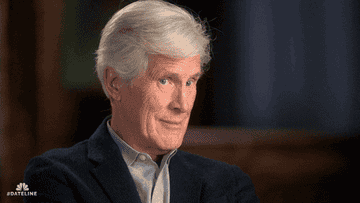
NBC / Via giphy.com
Let's face it, if there's a big true crime case that's been left unsolved, or has haunted people with its facts for years, there's going to be some sort of true crime content on it (that lives outside of the news). From books to podcasts, all the way to TV shows and movies, trust me, it will get covered.
So, I recently asked the BuzzFeed Community to share reasons for not wanting to consume true crime content.
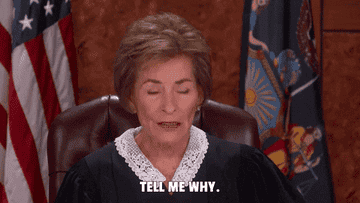
Big Ticket Television / Via giphy.com
Some people are curious and will go looking for extra details on an unsolved or horrifying case, but not everybody wants to digest the details of true crime content. And that's totally normal, too.
But what's interesting is the different mix of responses to my question, and why people avoid watching or listening to true crime.
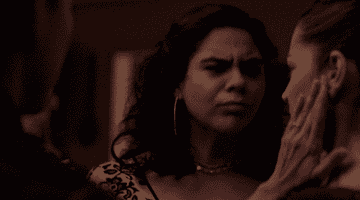
Crazy Cat Lady Productions / Via giphy.com
It's not as straightforward as you think, so I've picked out 20 different responses that stuck with me...
1.Because of the families and victims involved:
"I don’t often consume true crime media due to the families and victims involved. It feels wrong to 'enjoy' listening to these horrific events. The only times I am interested are for learning purposes such as when a case establishes some sort of legal precedent (I’m a law student) or if it’s profiling an especially abnormal criminal (I’m a psych major)."
2.For this person's mental health:
"I went down a true crime rabbit hole a few years ago, and my mental health spiraled. I started feeling paranoid all the time and had panic attacks before entering dark rooms in my own home.
I avoid violent true crime for my own mental health and for the sake of my partner so he doesn't have to check every room before I go in it."
3.Due to how shows glorify serial killers:
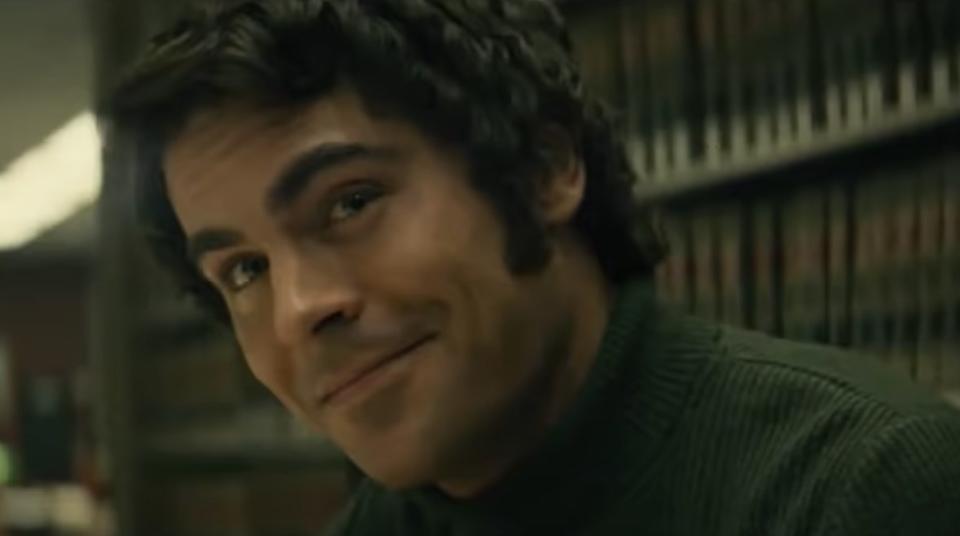
"I avoid the true crime shows that glorify serial killers, especially ones like Ted Bundy and Jeffery Dahmer. They're portrayed by a hot actor and BOOM! They're hot and compelling anti-heroes girls fawn over. It gets really disrespectful towards the victims and even worse, their side of the story isn't even shown. When will that day come?"
4.This person's outlook has changed because they have experienced true crime trauma:
"Once you experience some form of true-crime trauma firsthand in your own life, your outlook on that sort of content completely changes. You don’t want to watch more of it. It’s not 'entertaining' whatsoever."
5.Because it makes you lose faith in humanity:
"It makes me lose some faith in humanity and I worry about slowly becoming a party to exploitation without realizing it."
6.Because you can't even play the villain role in video games, much less listen to stories about murder:
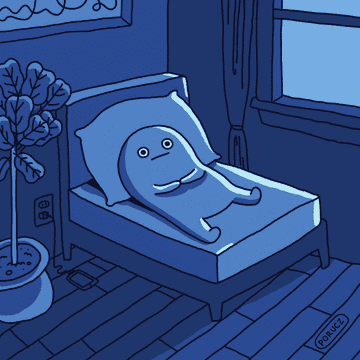
Michelle Porucznik / Via giphy.com
"I've got enough anxiety as it is! I'm already worrying about my child what with shootings, bullies, the current state of the world, etc. I don't need to know details about what these monsters have done to these poor people. I can't even play as evil in a video game, how could I *possibly* "enjoy" hearing about real-life crimes and the gruesome recountings?!"
7.It's not good for highly sensitive people:
"I'm a highly sensitive person which along with other things heightens my empathy, so I can't really handle true crime or anything. Horror movies are different because there's a level of disconnect since I know they aren't real people, but true crime series just break my heart, and I know I won't be able to sleep that night."
8.They are too ambiguous or when the killer is inadvertently glamorised:
"I'll only watch if it's been heavily fictionalized, Law & Order-style. Watching TRUE true crime is just always messy. The thing about true stories framed as true stories is that you can only do so much to wrap up the narrative. Either you're left with the ambiguity that comes from never really knowing (see the most recent time I broke my rule and watched The Lørenskog Disappearance, and you never know who really did it because you don't know what happened to the victim's real-life counterpart either), or the killer is a clear-cut monster. You get the ick factor of possible glamorization or victim exploitation."
9.One particular tweet summed up how true crime must feel to the victims:

@gatorbiz / Via giphy.com
"There was a tweet I saw once that really summed it up for me. It was something along the lines of 'Imagine if your son was murdered, and then one day you watched the news and found out someone has been given an award for pretending to be your son's murderer in a show.' I can’t watch these shows because I feel it’s morally wrong if not all the victims' friends and family members consent to it. I don’t want to give my money to something that’s wrong and hurting people."
10.This person won't watch due to personal history:
"A family member of mine was killed by a serial killer in the '70s. Every few years someone decides they want to tell the story again, sometimes it’s a documentary, sometimes it’s a drama, and they always reach out to us for a comment. It doesn’t matter how many times we put out the statement that we want to be left alone, they always say their show is different because they’re “putting the victims first” but it’s just a reminder of what we’ve lost. I can’t see a true crime feature without thinking of the other families who probably just wanted to be left in peace."
11.After having kids, it's a no-go:
"I used to love it but after having my daughter, it makes me think of her safety and all the dangers out there. It hurts me to see other mothers out there mourning their children."
12.It's just not entertaining:
"Tbh at first I avoided it because I don’t find it entertaining. I had no judgment toward people who were into it, it was as if everyone was super into agriculture for some inexplicable reason. ‘Not my cup of tea, love that for you though’ type of vibes. Now that I understand it to be super exploitative of others’ trauma I do side-eye people who still make it a part of their personality. Like, do you not know better or do you not care?"
13.Working in a prosecutor's office is enough:
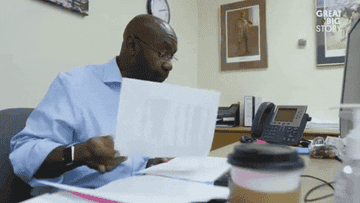
@greatbigstory / Via giphy.com
"I work in a prosecutor's office. I see, read, and talk about true crime every day. I can't spend my nights and weekends consuming it, too. I do love a good thriller, but only the fictional kind."
14.This person won't watch true crime because they, "already know people are awful":
"For the same reason I don’t watch 'reality' tv: I already know people are awful. I don’t need to seek out further proof."
15.The news is simply enough:
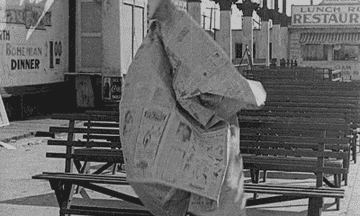
@thelolgifs / Via giphy.com
"The real news and modern-day crimes are enough to depress me so I don’t stop to watch past crimes unfold. I used to, but the world is too bleak to add to it! I need to watch things that are more uplifting and less heavy!"
16.True crime is becoming too much of a part of certain people's identities:
"I stopped because it seems that more and more with true crime people are making it their identity not just an interest and it’s uncomfortable. I used to have a few friends I could casually talk about true crime with, but now it’s ALL they want to talk about and the new shows/podcasts/books/movies, etc. We have created a culture obsessed with true crime to the point where people are having serial killer-themed wedding receptions. I just can’t participate in that anymore."
17.The confusion over how you can feel such mood-altering empathy, yet people still find it fascinating:
"Almost thirty years ago (in the '90s) everyone in my class had to do a book report about any fairly recent huge news story. I chose to do mine on Jeffrey Dahmer and started reading a novel about it (I think it was called Milwaukee Murders). Anyway, you could literally see the roller coaster of emotions as each student got up and did their report on a positive figure/story or a horrific person/story. Every day for a week, depending on who gave the last report, either we all went to lunch happy and laughing or depressed and disgusted. I had the last report that Friday and it left such a bad taste in my mouth while everybody else was just so happy for the weekend that I was completely turned off of true crime before I even became an adult. I don't watch anything remotely true crime related now because I find it odd that a class full of teenagers felt such mood-altering empathy just from ten-minute book reports but scores of grown-ass people see it as fascinating entertainment to gorge on."
18.The killer's story just doesn't need to be told:
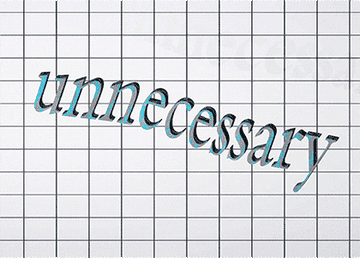
@clemensreinecke / Via giphy.com
"I avoid it because it sensationalizes these monsters who killed real people. I genuinely don’t feel like their side needs to be told, I think of the victims and their families and all they had to go through. They’re who matter. Not the serial killers."
19.The impact of watching an interview with a dad who went to a true crime convention. (By the way, I had no idea this was a thing?!):
"Once I heard an interview with a dad who went to a true crime convention. The total disconnect in his voice when he spoke about people talking about his daughter's (solved) murder. Like he knew there was nothing he could do but the compounding hurt of his loss being turned into entertainment numbed him. It was heart-wrenching. There is enough fiction that we don’t need to turn people’s tragedies into something to consume. Drawing attention to an unsolved case can be done in a respectful way. 99% of these podcasts/shows are not done respectfully."
20.Having intrusive thoughts:
"Intrusive thoughts. That's why. I can't watch anything without somehow thinking that it's going to happen to my own husband, or family, or me. I used to watch it, but my brain kept saying, 'See? It's SO EASY. Don't they make it look so easy for a stranger to befriend you or someone always watching you and just waiting for the right opportunity?' Yeah, not about that life."
21.It's just too sad:
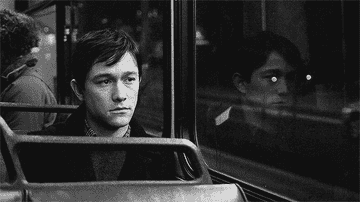
Dune Entertainment / Via giphy.com
"It’s just too depressing and upsetting for me. I watch TV and movies to escape from reality, not to be reminded that there are some really terrible people out there, and people grieving for the loss of a loved one."

